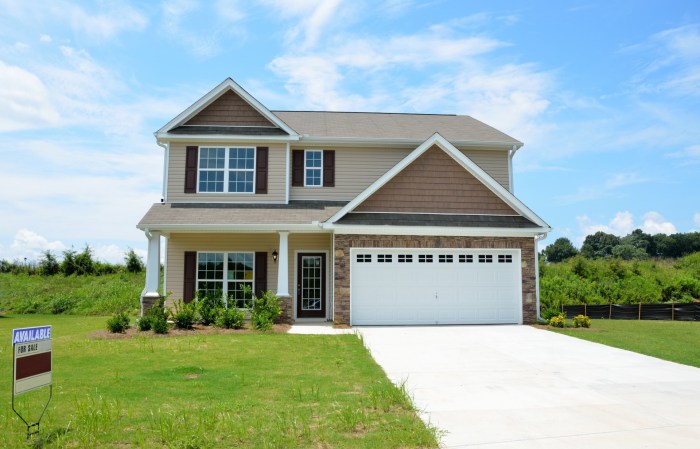Best home security systems for comprehensive protection
Best home security systems provide essential measures to safeguard your home and loved ones from potential threats. In an era where safety concerns are paramount, these systems have evolved to incorporate advanced technology, ensuring optimal protection through components such as alarms, surveillance cameras, and monitoring services. Understanding the various types of security systems, their features, and the top brands available will empower homeowners to make informed decisions tailored to their unique needs.
The importance of home security systems cannot be overstated, as they play a crucial role in deterring crime and providing peace of mind. From traditional wired systems to modern smart solutions that offer remote access and automation, homeowners now have a wide array of options. As technology continues to advance, so too do the capabilities of these systems, making it vital for individuals to stay informed about the latest innovations and best practices in home security.
Overview of Home Security Systems
Home security systems play a crucial role in safeguarding residences from potential threats, such as burglaries and vandalism. These systems provide homeowners with peace of mind by ensuring their property is monitored and protected around the clock. The importance of these systems is underscored by statistics showing that homes without security measures are three times more likely to be targeted by intruders.A typical home security system comprises several key components designed to work in unison to offer comprehensive protection.
These components include alarms that alert homeowners and authorities in case of unauthorized entry, cameras that provide visual monitoring and recording of activities around the property, and monitoring services that ensure a quick response to any security breach. Over the years, these systems have evolved significantly, integrating advanced technologies such as smart home compatibility and remote access through mobile applications, enhancing both functionality and user experience.
Key Components of Home Security Systems
The effectiveness of home security systems relies on a combination of various components, each serving a unique purpose. Understanding these components is essential for homeowners looking to enhance their security. The main components of a home security system include:
- Alarms: These devices serve as the first line of defense by sounding an alert when a breach occurs. Modern alarms can be equipped with features such as voice alerts and integration with smartphone applications to notify the homeowner instantly.
- Cameras: Surveillance cameras provide critical visual evidence, deterring potential criminals and aiding law enforcement. Today’s cameras often feature high-definition recording, night vision, and cloud storage capabilities.
- Monitoring Services: Many security systems offer professional monitoring services that ensure immediate response to alarms. These services can include 24/7 surveillance by trained professionals who can contact authorities on behalf of the homeowner.
- Smart Home Integration: Modern systems often integrate with smart home technology, allowing homeowners to control their security settings remotely through a smartphone or tablet. This can include locking doors, viewing live camera feeds, or adjusting alarm settings from anywhere.
Evolution of Home Security Systems
Home security systems have undergone significant transformations since their inception. The earliest systems were rudimentary and relied primarily on simple locks and basic alarm mechanisms. As technology advanced, so did the capabilities of these systems.Initially, home security was characterized by mechanical locks and basic alarm systems that would sound an alarm when a door or window was forced open. However, the introduction of electronic systems in the late 20th century marked a turning point, allowing for more sophisticated monitoring and alerts.
In the 21st century, the advent of wireless technology and the internet have revolutionized home security. Homeowners can now access their security systems remotely, receive real-time alerts on their smartphones, and view live feeds through connected cameras. Moreover, advancements in artificial intelligence have enabled features such as motion detection and facial recognition, providing enhanced security and convenience. The evolution of home security systems underscores the importance of adapting to new technologies to ensure optimal safety for homes and families.
Types of Home Security Systems
Home security systems are essential for safeguarding your property and loved ones. As technology has evolved, various types of systems have emerged, each offering unique features and benefits tailored to different needs. Understanding these systems can help homeowners make informed decisions about their security needs.Among the most common types of home security systems are wired, wireless, and smart systems. Each type has its own advantages and disadvantages, influencing the choice of installation and operation based on personal preferences and specific home requirements.
Wired Security Systems
Wired security systems have been traditional solutions for home security, relying on physical connections between components such as cameras, alarms, and control panels. These systems are known for their reliability, as they are less susceptible to interference and hacking compared to wireless systems. The installation process typically involves running wires throughout the home, which can be labor-intensive but results in a durable setup.
To ensure that your brand stands out, it is vital to consider trademark registration services , which offer protection against unauthorized use of your brand. This allows you to focus on what you do best while maintaining your brand’s integrity. Additionally, a well-paved driveway not only enhances curb appeal but also provides a safer and more durable surface; thus, exploring options for driveway paving is a wise investment for any homeowner wanting to improve their property.
Wireless Security Systems
Wireless security systems operate using radio waves to connect devices, eliminating the need for extensive wiring. This type of system provides flexibility in installation, making it easier to reposition cameras and sensors without the hassle of rewiring. Wireless systems often include features such as remote monitoring and mobile alerts, allowing homeowners to manage their security from anywhere. However, they may be more vulnerable to signal interference and hacking if not properly secured.
Smart Security Systems
Smart security systems represent the latest innovation in home security. These systems are integrated with smart home technology, enabling users to control and monitor their security devices via smartphone apps or voice-activated assistants. Features may include smart locks, surveillance cameras with facial recognition, and automated alerts based on unusual activity. The convenience of remote access and the ability to integrate with other smart devices make these systems highly appealing for modern homeowners.
Comparison of Traditional and Modern Security Systems
When analyzing traditional security systems and advanced smart systems, several key differences emerge. Traditional systems, typically wired, focus on basic intrusion detection and alarm functionalities. In contrast, modern smart systems offer expansive features, including video surveillance, environmental sensors, and integration with home automation technologies. While traditional systems may require professional installation and maintenance, smart systems often provide DIY options, enabling greater adaptability for users.
DIY Security Systems vs. Professionally Installed Systems
Choosing between DIY security systems and professionally installed options is a significant consideration for homeowners. DIY systems allow individuals to install and configure their security setup without professional assistance, offering cost savings and control over the system’s features. These systems often come with user-friendly installation guides and mobile apps for easy management.On the other hand, professionally installed systems typically involve a dedicated security company that handles the setup, monitoring, and maintenance.
While this may incur higher initial costs, the expertise of professionals can ensure a comprehensive security solution tailored to the specific needs of the home. Homeowners lacking technical expertise may find professionally installed systems provide peace of mind and reliability.
In today’s competitive market, securing your brand identity is crucial, and utilizing trademark registration services can provide you with the necessary legal protection. This service not only safeguards your brand but also enhances your business’s credibility. Similarly, maintaining an appealing entryway is essential for any property; investing in driveway paving can significantly improve the aesthetic value and functionality of your home.
By focusing on both aspects, you can elevate your brand and property simultaneously.
“The choice between DIY and professionally installed systems ultimately depends on individual comfort levels with technology and the desired level of support.”
Features to Look for in the Best Home Security Systems

When choosing a home security system, it is essential to understand the various features that can provide the best protection for your property. With advancements in technology, modern security systems offer an array of functionalities designed to enhance safety and convenience for homeowners. Evaluating these features will help you make an informed decision tailored to your specific needs.An effective home security system should incorporate a range of essential features that not only deter potential intruders but also provide you with peace of mind.
Among the critical attributes to consider are motion detection, night vision capabilities, and the ability for remote access. These features facilitate real-time monitoring and quick responses to any suspicious activity within or around your home.
Essential Features for Optimal Security
It is important to recognize that a comprehensive home security system comprises several must-have features that enhance your protection. The following list highlights key functionalities that every homeowner should consider:
- Motion Detection: This feature utilizes sensors to detect movement within designated areas. Alerts are often sent to your smartphone or alarm system, allowing for immediate action if necessary.
- Night Vision: Cameras equipped with night vision capabilities enable surveillance in low-light conditions, ensuring that your property remains monitored after dark.
- Remote Access: The ability to control your security system through a smartphone app provides convenience and instant alerts, allowing homeowners to monitor their property at any time.
- Home Automation Integration: Seamless integration with smart home devices can enhance the effectiveness of your security system. This includes functionalities such as automated lighting, smart locks, and environmental sensors that work together to create a secure living environment.
- 24/7 Monitoring Services: Professional monitoring services ensure that your home is monitored around the clock, providing quick responses to any emergency situation.
- Two-Way Communication: This feature allows users to communicate directly through security cameras, providing an added layer of interaction and response.
- High-Definition Video Quality: Cameras that provide clear, high-definition images enhance the ability to identify individuals and events occurring around your property.
- Emergency Alerts: Instant alerts for smoke, carbon monoxide, and flood detection are critical components of a comprehensive security system, ensuring safety from various emergencies.
Understanding these features will empower homeowners to select a security system that not only meets their needs but also provides an integrated approach to safeguarding their homes, ultimately enhancing their overall security posture.
Top Home Security Brands

Home security is a crucial aspect of protecting your property and loved ones. With various brands offering a wide range of products and services, it is essential to understand which home security brands lead the industry in terms of reliability, innovation, and customer satisfaction. This section will explore the top home security brands, comparing their unique offerings and customer feedback, while also highlighting any notable recognitions they have received.
Comparison of Leading Home Security Brands
Several brands stand out in the home security market, known for their effectiveness, advanced technology, and customer service. The following brands are frequently praised for their comprehensive home security solutions:
- ADT: One of the oldest players in the security industry, ADT offers a range of services, including professional monitoring, home automation, and a wide variety of equipment. Their extensive experience has earned them a reputation for reliability.
- Vivint: Known for its cutting-edge technology and smart home integration, Vivint provides customizable security packages, including video surveillance and smart locks. Their user-friendly app is highly rated among consumers.
- Ring: Originally famous for its video doorbells, Ring has expanded into a full home security system. Their affordable products, including cameras and motion detectors, are easy to install and integrate seamlessly with smart home devices.
- Frontpoint: This brand is recognized for its exceptional customer service and DIY installation options. Frontpoint offers a variety of equipment and flexible monitoring plans, appealing to those who prefer tailored solutions.
- SimpliSafe: Known for its straightforward setup and no-contract plans, SimpliSafe provides an affordable entry point for many homeowners. Its equipment options are varied, and the company has gained a solid reputation for reliability.
Customer Reviews and Ratings, Best home security systems
Customer feedback is a key indicator of a brand’s performance and reliability. The following summarizes consumer ratings and reviews for the leading home security brands:
“ADT is often praised for its professional monitoring services, but some users express concerns about high monthly fees.”
“Vivint’s technology is frequently highlighted in reviews, especially for its smart home features, although installation may require professional assistance.”
“Ring’s affordability makes it popular among budget-conscious consumers, but some users note the lack of professional monitoring options.”
“Frontpoint receives commendations for customer service and ease of use, with many reviews mentioning the helpfulness of the support team.”
“SimpliSafe users appreciate the no-contract policy and straightforward setup, though some equipment may lack advanced features compared to competitors.”
Notable Awards and Recognitions
Recognitions in the security industry further validate the effectiveness and innovation of leading brands. The following brands have received notable awards:
- ADT: Recognized for its longevity in the market, ADT has received various accolades for customer satisfaction and service excellence.
- Vivint: This brand has garnered awards for innovation, particularly for its smart home technology, making it a leader in modern security solutions.
- Ring: Awarded for its design and functionality, Ring has been recognized as a top choice for consumer electronics, particularly in the home security space.
- Frontpoint: Celebrated for customer service, Frontpoint has received awards highlighting its dedication to consumer satisfaction.
- SimpliSafe: This brand has earned recognition for its value and user-friendly systems, appealing to first-time security system buyers.
Cost Considerations
Investing in a home security system is a crucial decision for homeowners looking to protect their property and loved ones. Understanding the associated costs is essential for making an informed choice that fits within a budget. This section will provide a detailed overview of the average costs involved in purchasing and installing various home security systems, as well as ongoing expenses related to monitoring and maintenance.The total cost of home security systems varies widely based on the type of system chosen, the features included, and the installation methods.
Homeowners must consider both upfront costs and long-term expenses to determine the financial commitment required for their security needs.
Average Costs of Home Security Systems
The initial purchase and installation costs for home security systems can differ significantly. Below is a breakdown of the average costs associated with different types of systems:
| Type of System | Average Cost (Installation + Equipment) |
|---|---|
| Wired Security Systems | $800 – $1,500 |
| Wireless Security Systems | $300 – $1,200 |
| DIY Security Systems | $200 – $800 |
| Monitored Security Systems | $500 – $1,500 |
The costs Artikeld above reflect the basic components required for installation, including control panels, sensors, cameras, and alarms. Additional features, such as smart home integration and advanced surveillance options, may increase the total expenditure.
Ongoing Costs of Home Security Systems
In addition to initial investment costs, homeowners must also consider ongoing expenses associated with the operation of home security systems. These costs can include monitoring fees, maintenance, and potential upgrades. Below is an overview of these recurring costs:Monitoring fees are typically charged monthly and can vary based on the level of service provided:
- Self-Monitored Systems: $0 – $20/month (Usually app-based alerts)
- Professionally Monitored Systems: $15 – $60/month (Round-the-clock monitoring)
- High-End Monitoring Services: $50 – $100/month (Includes advanced features like environmental monitoring)
Maintenance costs should also be accounted for, especially for wired systems that may require professional service:
- Routine Maintenance: $100 – $300 annually (Includes system check-ups and updates)
- Repairs: Variable (Depending on the nature and extent of the damage)
- Upgrades: $200 – $500 (For adding new equipment or enhancing existing features)
“Understanding both initial and ongoing costs is vital for evaluating the financial implications of a home security system.”
By considering the details presented, homeowners can evaluate different security options effectively and make informed choices that align with their security needs and budgetary constraints.
User Experience and Customer Support

The user experience and quality of customer support are critical factors when selecting a home security system. A system may offer cutting-edge technology and advanced features, but if it is difficult to install or operate, its effectiveness can be significantly diminished. Furthermore, reliable customer support ensures that users can resolve any issues promptly, enhancing their overall satisfaction and security.The installation process varies widely among different home security systems, with some offering DIY options while others require professional installation.
Systems designed with user-friendliness in mind tend to include intuitive interfaces and guided setup processes that make it easier for homeowners to install and manage their security solutions. Additionally, well-documented user manuals and online resources can further simplify the setup and ongoing usage of the system.
Importance of Customer Support and Warranty Services
Customer support is an essential aspect of any home security system, as it provides users with assistance in troubleshooting, installation, and the maintenance of their systems. A responsive customer service team can make a significant difference when urgent issues arise, such as false alarms or malfunctioning equipment. Warranty services also play a crucial role; a robust warranty can provide peace of mind, knowing that repairs or replacements will be covered should equipment fail.Home security companies typically offer varying levels of customer support, which can impact users’ overall experience.
In evaluating customer service options, consider the following aspects:
Availability
Look for companies that provide 24/7 support to address issues at any time.
Contact Methods
A variety of contact options (phone, email, chat) allows users to choose their preferred communication method.
Response Time
Timely responses are critical during emergencies; check for average response times from customer service.
Knowledge Base
A comprehensive online resource, including FAQs and troubleshooting guides, can empower users to resolve minor issues independently.
Training Resources
Instructional materials, such as video tutorials and webinars, enhance the user experience by facilitating system understanding.
Checklist for Evaluating Customer Service Quality
When considering home security companies, a checklist can aid in assessing the quality of their customer service. This checklist can help users make informed decisions based on the essential criteria Artikeld below:
- Are customer service representatives available 24/7?
- What communication channels are offered for support (phone, chat, email)?
- What is the average response time for customer inquiries?
- Is there a comprehensive online knowledge base available?
- Are there training materials available to assist users in system operation?
- What is the length and coverage of the warranty provided with the security system?
- Are there any customer reviews or testimonials available that speak to the quality of customer service?
By systematically evaluating these criteria, prospective customers can better understand the level of support they can anticipate and ensure their investment in home security is a sound one.
Future Trends in Home Security: Best Home Security Systems
The landscape of home security is rapidly evolving, driven by advancements in technology and changing consumer expectations. As we look to the future, several trends are emerging that promise to enhance the effectiveness and accessibility of home security systems. These developments will not only influence how homeowners protect their property but also how they interact with and manage security features.One significant shift in home security is the integration of emerging technologies that are set to redefine traditional security systems.
Advancements such as facial recognition, smart locks, and real-time monitoring are becoming increasingly mainstream, allowing homeowners to personalize their security experiences like never before. These innovations enhance safety measures and provide convenience, enabling homeowners to control their security settings remotely via smartphones or other devices.
Impact of Artificial Intelligence and Machine Learning on Security Monitoring
Artificial intelligence (AI) and machine learning (ML) are revolutionizing security monitoring by enabling systems to learn from data and improve over time. These technologies facilitate sophisticated threat detection and response mechanisms.
Predictive Analytics
AI systems analyze patterns and behaviors to predict potential security breaches. For instance, if a system detects unusual activity in a specific area at an odd time, it can alert homeowners to potential threats.
Image Recognition
Machine learning algorithms enhance video surveillance by identifying individuals and distinguishing between regular visitors and potential intruders, thereby reducing false alarms.
Automated Responses
AI can trigger automatic actions in response to threats, such as locking doors or alerting authorities, which can significantly increase response times during emergencies.The adoption of these technologies not only enhances security but also streamlines the monitoring process, allowing homeowners to focus on their daily lives without constant worry.
Role of IoT Devices in Enhancing Home Security
The Internet of Things (IoT) is playing a pivotal role in advancing home security measures, creating interconnected systems that provide comprehensive coverage and convenience. IoT devices such as smart cameras, motion sensors, and connected alarms work synergistically to bolster overall security.
Integration
IoT devices can be integrated into a single home automation platform, facilitating seamless communication between devices. For example, when a smart camera detects motion, it can automatically activate outdoor lights and send an alert to the homeowner’s smartphone.
Remote Access
Homeowners can monitor and control IoT-enabled security devices remotely, allowing them to respond to alerts and manage their security settings from anywhere in the world. This increased accessibility provides peace of mind, especially for those who travel frequently.
Data Sharing
IoT devices collect and share data, enhancing the ability to make informed security decisions. For instance, data from smart locks can help identify patterns in usage, allowing homeowners to adjust their security settings based on their unique habits.In summary, the future of home security is being shaped by the integration of advanced technologies like AI, ML, and IoT devices, which not only enhance traditional security measures but also provide a more user-friendly and intuitive experience for homeowners.
As these trends continue to evolve, they will likely create safer and more responsive home environments.
Best Practices for Home Security
To effectively safeguard your home, it is essential to implement best practices that enhance the capabilities of your home security systems. These strategies not only maximize the efficiency of your chosen security solutions but also help create a comprehensive protective environment. Moreover, understanding common pitfalls can significantly reduce vulnerabilities that homeowners often overlook.
Tips for Maximizing Home Security System Effectiveness
The following tips provide crucial insights into how homeowners can leverage their security systems to their maximum potential, ensuring a fortified living space:
- Regularly update passwords and access codes for all security devices to prevent unauthorized access.
- Ensure all sensors and cameras are functioning correctly by conducting periodic tests and maintenance checks.
- Set up alerts and notifications for any unusual activity detected by your security system, allowing for prompt response.
- Integrate smart home technology with your security system for enhanced automation and remote monitoring.
- Establish a routine for reviewing footage from security cameras to identify any potential security breaches.
Common Mistakes Homeowners Make with Security Systems
Homeowners often fall into certain traps that can compromise their home security. Recognizing these mistakes can help in avoiding them and improving overall safety:
- Neglecting to change factory default passwords, leaving systems vulnerable to hacking.
- Failing to cover all entry points with adequate security measures, such as cameras or motion detectors.
- Over-relying on technology without complementing it with physical security measures like deadbolts and window locks.
- Ignoring system updates that can patch vulnerabilities and enhance functionality.
- Underestimating the importance of signage and visible deterrents, which can discourage potential intruders.
Preventive Measures to Enhance Overall Home Security
Beyond the implementation of security systems, several preventive measures can significantly contribute to enhancing home security:
- Maintain good visibility around your property by trimming hedges and using outdoor lighting to eliminate dark areas.
- Establish a neighborhood watch program to foster community vigilance and collaboration against crime.
- Utilize smart locks that allow for remote access and monitoring, providing additional layers of control.
- Regularly check and secure all windows and doors, ensuring they are locked when not in use.
- Consider landscaping strategies that deter intruders, such as thorny bushes near windows and entry points.
Final Wrap-Up
In conclusion, selecting the best home security systems is a critical step in ensuring the safety and security of your household. By understanding the various types of systems, essential features, and costs involved, as well as considering future trends in technology, homeowners can make well-informed choices that meet their specific requirements. Ultimately, investing in a reliable home security system not only protects your property but also provides invaluable peace of mind for you and your family.
Q&A
What are the key components of a home security system?
The key components typically include alarms, surveillance cameras, motion detectors, and monitoring services.
How much do home security systems cost on average?
Average costs can range from a few hundred to several thousand dollars, depending on the system type and features.
Can I install a home security system myself?
Yes, many systems are designed for DIY installation, while others may require professional installation.
How do smart home security systems work?
Smart home security systems connect to the internet, allowing you to monitor and control them remotely via smartphone apps.
What is the importance of customer support in home security?
Reliable customer support ensures assistance during installation, troubleshooting, and maintenance, enhancing user experience.



